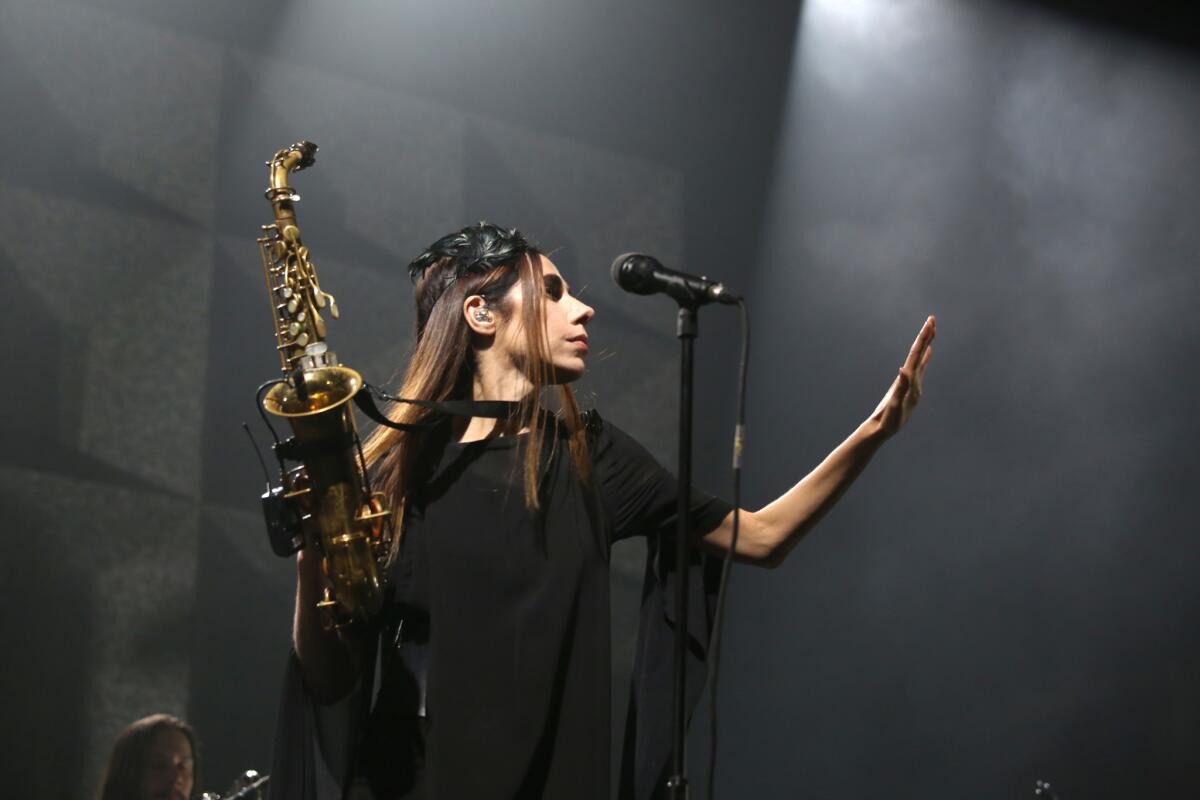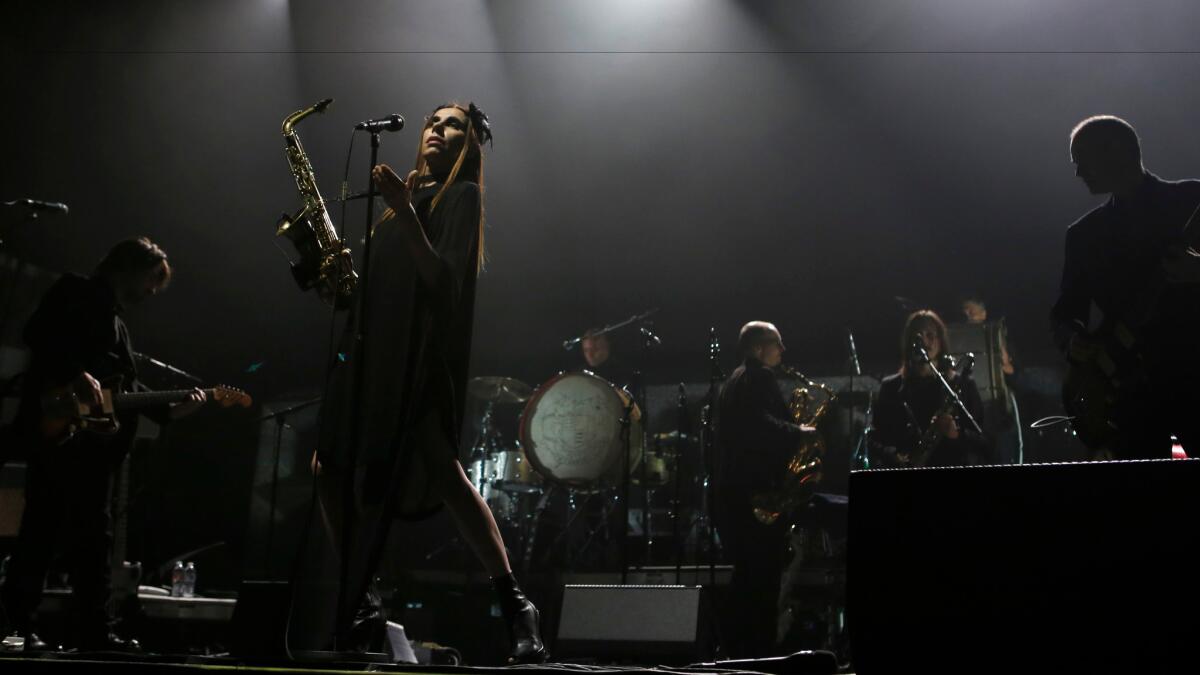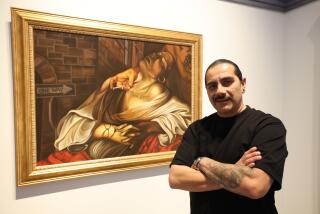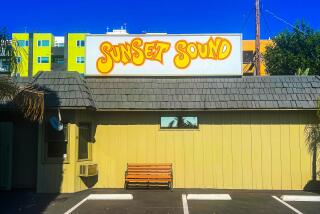PJ Harvey creates a bluesy soundtrack for tough times at the Shrine

The opening moments of a PJ Harvey concert come with a war correspondent’s eye for detail and an activist’s call to action: Broken homes. Shattered glass. Syringes on the floor. A “highway to death.”
Rhythms, in the form of militant drum beats, create a boots-on-the-ground feel. Guitars, jagged and fiery, cut through the groove like a fist in the air. And saxophones are raw, dirty and ready to howl.
Harvey in 2016 is part rock ‘n’ roll and part blues, fitting into a tradition while defining her own. She’s apt to reference blues standards and gospel spirituals, or take the songs down sudden detours more befitting a jazz club.
At some moments on Thursday evening at the cavernous Shrine Expo Hall, the songs of the English artist felt rooted in the deep American South. Other times, the songs took on a more global approach, with hand claps, maracas and marching band drums creating a disruptive stance. Throughout, the concert veered between the precise and the coarse, as even the jauntiest melodies could suddenly dissolve into something more unsettling.

Harvey, who had earlier in the week played New York, her first notable U.S. tour dates in about five years, arrived at the Expo Hall, one of two local dates, in support of her recent work, “The Hope Six Demolition Project,” an album that feels as much progressive journalism as it does musical. It’s uncomfortable but not difficult, a collection of songs that want to confront rather than alienate.
Income inequality, war-stricken communities and impervious politicians dot the work. But rather than approach the songs like a documentarian, Harvey personalizes them, singing about the responsibility of the privileged. It’s global at its most intimate — a diary of life during tumultuous times.
“Dollar Dollar” emerged from a fog of brass and hazy guitars — the latter instruments struck as if they were a harpsichord — as Harvey detailed the face of a young beggar approaching a car. Harvey stalked the stage, moving like a wisp of smoke, while dual saxophones behind her turned the sound of tires peeling off into a regretful lament.
Armed with a 10-piece band — dressed in full black, as if this were a dirge rather than a concert — Harvey relied heavily on recent compositions rather than digging deep into her two-decade-plus career. While there’s always been a sense of rebellion — and perhaps even indignation toward the status quo in her work— Harvey acted as a calming presence amid the anger Thursday evening.
She led group chants on “The Community of Hope” and “Near the Memorials to Vietnam and Lincoln” and let her voice settle into an upper-register serenity while the songs built, as if to lead rather than incite. This, even as chaos organized around her. “Chain of Keys” opened the night as if to say war is coming, with Harvey wielding a sax with one arm and extending her other with a clenched fist. She let the instrument pierce the melody, the horn scarring the rock orchestra like a shard of glass out for blood.
“Piles of rocks and dust and smog” polluted the landscape of “The Orange Monkey” while a keyboard stood on high alert amid rising backing vocals. “How to stop the murdering?” she wondered on the devilishly buoyant “A Line in the Sand,” driven by a twinkling of synths and a plucky bass, the sound of a relentless and unstoppable forward momentum.
Although there may be a pall to some of Harvey’s songs — perhaps none more so than her eerie mid-’90s breakthrough “Down by the Water” — a redemptive, hopeful quality carried the night. “What will become of us?” she sang amid the booming, stoic drums of set-closer “River Anacostia,” which gradually segued into a church-like hymn.
Earlier, “Let England Shake” twisted and contorted itself until it felt born of a haunted house, and “The Words That Maketh Murder” bounced and shimmied as if it were an age-old pub song.
If times are tough, Harvey seemed to be saying, we may as well go down swinging.
Follow me on Twitter: @toddmartens
ALSO
The Regrettes may be high-school age, but the band’s worldview is all grown up
Echo Park punk band Bleached embraces life’s darkness, with an almost beachy exuberance
More to Read
The biggest entertainment stories
Get our big stories about Hollywood, film, television, music, arts, culture and more right in your inbox as soon as they publish.
You may occasionally receive promotional content from the Los Angeles Times.







